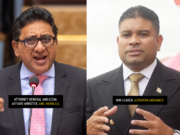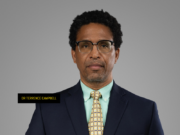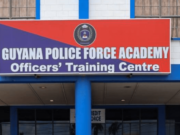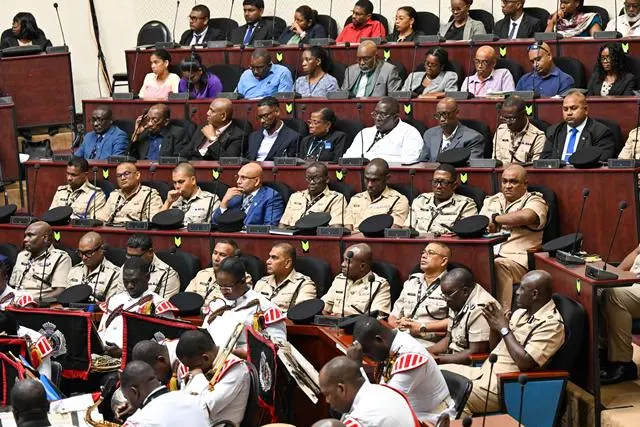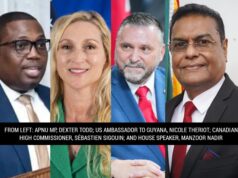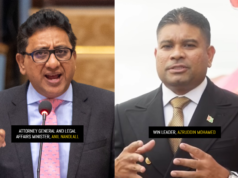The president was at the time delivering the feature address at the 39th Association of Caribbean Commissioners of Police (ACCP) Conference and Annual General Meeting at the Arthur Chung Conference Centre, Liliendaal.

He emphasised the importance of integrating the framework into the region’s policymaking process to ensure a coordinated and effective security response.
The ‘HITLIST’ framework is structured around the following key pillars: H – Human Capital; I – Infrastructure; T – Technology; L – Legislation; I – Intelligence; S – System; T – Training.
President Ali stressed that investment in the region’s human assets is critical to enabling police officers to thrive.
“It is better if we have a higher level of training at every level of the system,” he said.
In Guyana, the government is laying the foundation for robust regional security by constructing a state-of-the-art forensic facility, outfitted with modern equipment to serve the wider Caribbean.
The country is also investing in advanced technology to support regional crime-fighting efforts.
On the legislative front, the Attorney General’s Chambers are reviewing several crime-fighting laws to strengthen the region’s security framework.

The president also highlighted the critical importance of intelligence gathering and service in propelling the security agenda. Regionally, he noted there remains a heavy reliance on human input at every level of policing.
“This system must change…How do we reduce that human aspect with more technology so that we can [use] technology to build trust and to reduce dissatisfaction,” he highlighted.
The president further urged the region to utilise the training opportunities that are available under the Indian Technical and Economic Cooperation (ITEC) programme.
The Caribbean remains a region that faces great problems in its homicide rate, assault and threats, firearm usage, illegal firearms, youth involvement, gang and drug-related violence.
President Ali, however, stated that, “This is not a challenge for our commissioners and security personnel. This is a challenge for our region, policymakers, commissioners, the private sector, archies, and the religious community.”

The Guyanese Head of State emphasised the importance of equipping policymakers with the necessary resources to create an environment that enables police officers to perform their duties effectively. He urged all commissioners to examine the evolving policy landscape and extra-regional dynamics to better address emerging security threats.
“If we are to safeguard our communities, our economies, and democracies, we must build an integrated Caribbean security architecture, one rooted in shared intelligence and coordinated action,” he added.
He highlighted that the workshop should be one of action to dismantle criminal networks.
Minister of Home Affairs Robeson Benn reported that over $9 billion has been invested in 72 capital projects to modernise police infrastructure, including the construction of 22 police stations, command centres, and IT systems across the country.
Commissioner of Police Clifton Hicken also stressed the need for a unified approach to tackle cross-border crime and cyber threats, given their impact on security, the economy, and society.
Outgoing ACCP President and Antigua and Barbuda’s Police Commissioner, Atlee Rodney, called for greater regional focus on police officers’ mental health. He also encouraged active participation in solution-driven discussions and networking to address regional policing challenges.



The week-long conference, themed ‘United in Action, Transformed in Purpose, Building an Integrated Caribbean Security Architecture’, seeks to advance the ACCP’s mission through regional collaboration. Key focus areas include strategy development, professional training, crime prevention, and strengthening community-police relations.
Formally established on August 20, 1987, in Castries, Saint Lucia, the ACCP began with 13 member states.
President Ali also received a plaque for his robust leadership.
Also present at the conference were the Prime Minister, Brigadier (Ret’d) Mark Phillips, Attorney General and Minister of Legal Affairs Mohabir Anil Nandlall S.C, Senior Minister in the Office of the President with responsibility for Finance and Public Service Dr Ashni Singh, several heads of the joint service and 24 visiting commissioners of police. (Department of Public Information)


